The very idea of Germany is inherently associated with research and development in most of our minds. It is but obvious that an MS in Germany would be at the top of your mind when you think of doing your Masters abroad!
There are many reasons why doing your Masters abroad is a great idea. If you’re debating over whether you should do your masters or MBA in India or abroad, do check out this article.
But we understand that choosing to do an MS abroad is usually a complicated decision because it means investing a vast amount of money and time. One of the biggest deterrents that keep people from studying abroad is the lack of reliable funding.
In fact, that’s yet another reason why an MS in Germany is a great idea. Germany has highly subsidized higher education options. So much so, actually, that your MS could actually be entirely free!
The advantages of doing your Masters from one of the world’s most advanced countries are endless.
That’s why we’ve put together a list of the best universities in Germany to help you get started.
Here are the top universities for MS in Germany.
1. Technical University of Munich

The Technical University of Munich (TUM) has been around for over 150 years. Known to be among the best universities in Germany for international students, it offers 27 different MS programs where the language of instruction is English.
M.Sc. in Earth-Oriented Space Science and Technology (ESPACE) is one of the most interesting Master’s in Germany in English that is taught at TUM.
TUM has been associated with 16 Nobel Prize winners.
In 1927, Heinrich Otto Wieland, who previously taught Chemistry at TUM, became the first of many TUM associates to be awarded a Nobel Prize. The most recent Nobel laureate from TUM is Joachim Frank, who won the 2017 Nobel Prize in Chemistry.
Of the 16 Nobel laureates, 8 were in Chemistry, 5 in Physics, and 3 were in Medicine or Physiology.
Like all Public Universities in Germany, the TUM charges no tuition fees. Your only expenses will be on rent, student union fees, and buying the books, gadgets, and equipment needed for your Masters in Germany.
2. Ludwig-Maximilian Universitat, Munich

Originally established in 1472, the Ludwig-Maximilian Universitat (LMU) in Munich is the sixth-oldest German University in constant operation.
With 42 Nobel laureates affiliated to its name, the LMU-Munich ranks 16th worldwide by the number of Nobel Prize winners. It is considered one of the most prestigious Universities in Europe.
In keeping with the European convention of offering higher education in English, LMU Munich offers 28 Master’s in Germany in English.
Being a public research university, LMU offers most of these programs for free. However, the following are executive programs that charge a tuition fee:
In addition to these three programs, LMU Munich also offers a number of Double or Triple Degree programs in collaboration with other Universities across Europe.
All of the collaborative programs are executive programs for which you’ll have to pay tuition fees.
3. Karlsruhe Institute of Technology (KIT), Karlsruhe
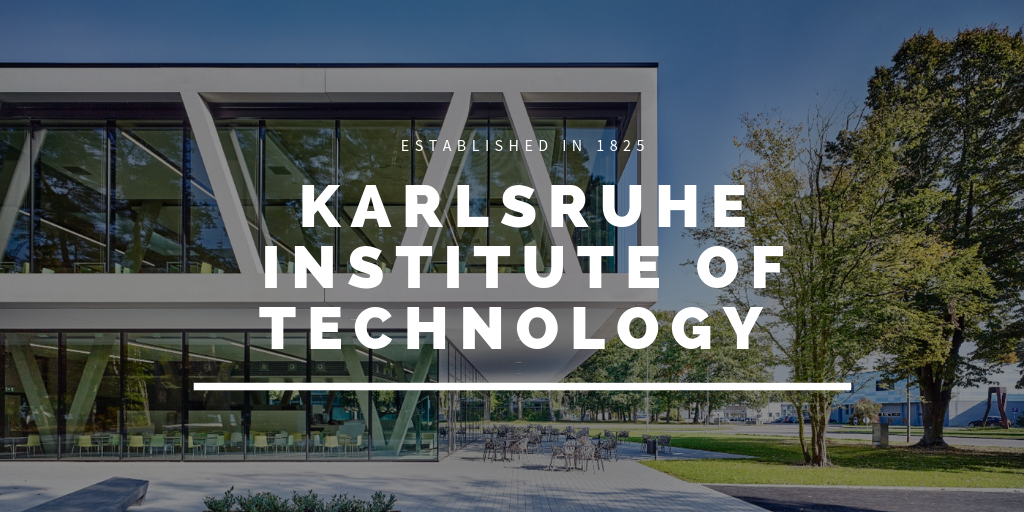
One of the interesting things about the KIT is that it was formed as recently as 2009.
It was created through the amalgamation of two formidable former institutions: the Karlsruhe University and the Karlsruhe Research Centre. The former was established in 1825 as a public research university, while the latter was established in 1956 as a national nuclear research center.
Along with 8 other universities including TUM, KIT is a part of an alliance of Germany’s leading technical universities, called TU9.
The KIT offers a variety of English and bilingual programs, giving students the option to study some courses in English and some in German.
Some of the bilingual and English-language Master’s programs at KIT are offered directly by the university. Details about such programs are available with the University’s International Students Office.
A greater variety of courses is offered by departments and schools associated with the university. The departments and schools are:
KIT also offers an Erasmus Mundus program – M.Sc. in Europhotonics.
Among the many interesting programs on offer are M.Sc. in Green Mobility, M.Sc. in Financial Engineering, and M.Sc. in Energy Engineering and Management.
4. Heidelberg University, Heidelberg
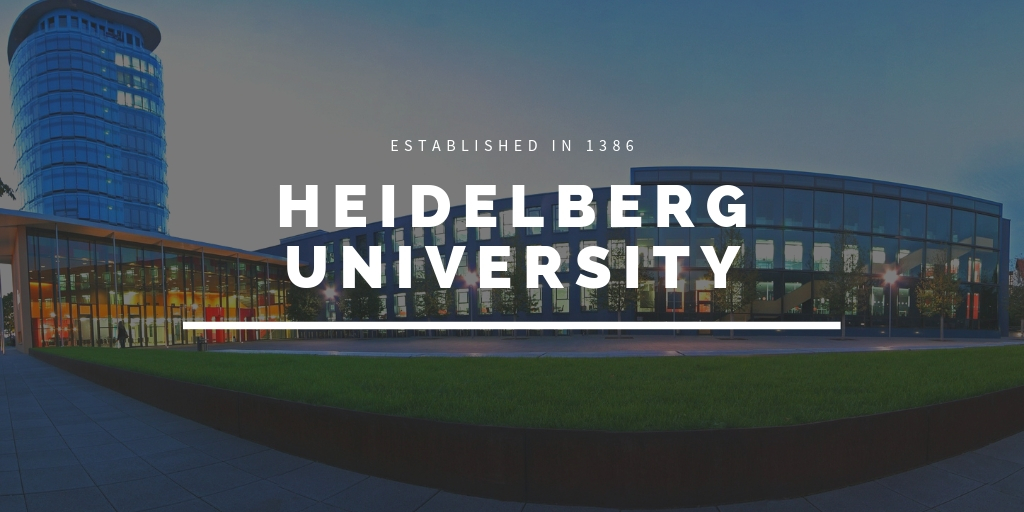
Founded in 1386, the Ruprecht-Karls-Universität Heidelberg, or University of Heidelberg, is one of the world’s oldest surviving universities.
As of 2017, a total of 56 Nobel laureates have been associated with the Heidelberg University. Many modern fields of study including psychiatry, psychiatric genetics, environmental physics, etc. were introduced by the faculty at Heidelberg.
Around one-third of the doctoral students at Heidelberg are international students. Yet, surprisingly, the University only offers 13 Master’s programs in English.
Here are the Master’s in Germany in English that Heidelberg has on offer:
- American Studies
- Anthropology/Ethnology
- Biomedical Engineering
- Computational Linguistics
- Economics
- English Studies
- Health and Society in South Asia
- International Health
- Molecular Biosciences
- Physics
- Scientific Computing
- Transcultural Studies
- Translational Medical Research
Notably, the University of Heidelberg offers English-language programs in both consecutive as well as continuing education formats.
Consecutive Master’s programs are those that build directly on corresponding Bachelor’s programs in the same subject. This means there is typically no gap between the two degrees.
Continuing Master’s programs typically require at least one year of work experience prior to admission.
5. Humboldt University, Berlin
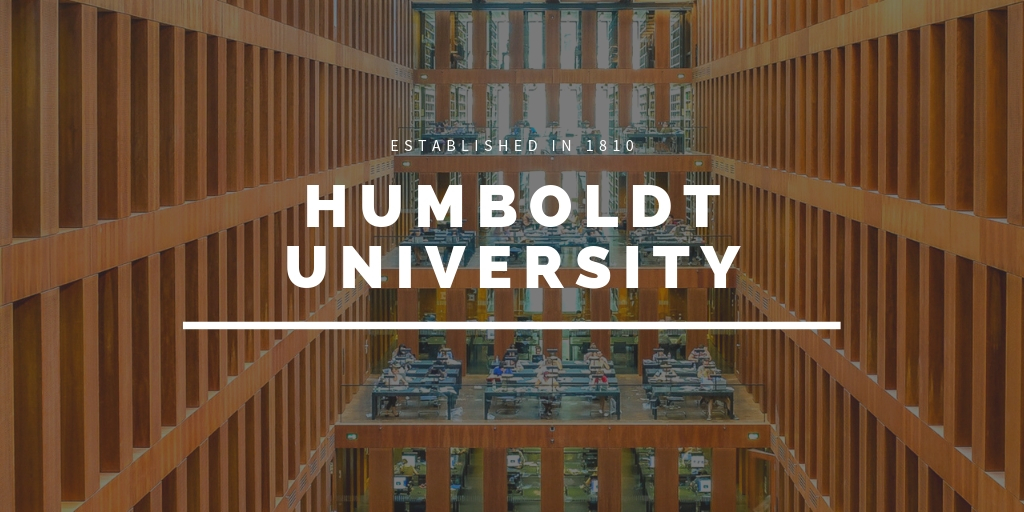
Originally established in 1809, this university has been through many names and avatars.
Initially called the University of Berlin, it was renamed to Friedrich Wilhelm University within a year. It was closed down in 1945 during the Cold War due to the partition of Berlin. It reopened in 1946 in East Berlin as the University of Berlin.
In 1949, the University chose to name itself after the Humboldt brothers who originally founded it, as opposed to being named after a Communist leader. After 1990, the name was retained due to its uncontroversial nature.
The Humboldt University of Berlin had 55 Nobel laureates associated with its name as of 2017.
Unlike other Universities whose Nobel laureates were majorly from Science fields, Humboldt laureates hold awards for Literature, too.
The Faculties and Centres of Humboldt University that offer Master’s in Germany in English are:
- Faculty of Law
- Faculty of Humanities and Social Sciences
- Faculty of Life Sciences
- Faculty of Mathematics and Natural Sciences
- Faculty of Arts and Humanities
- Faculty of Language Sciences
- Faculty of Theology
- Faculty of Economics and Business Administration
- Centre for British Studies
- Charité Universitätsmedizin Berlin
Each of these offers a host of International Programs except the Centre for British Studies which only offers one degree – an M.A. in British Studies.
6. Free University of Berlin
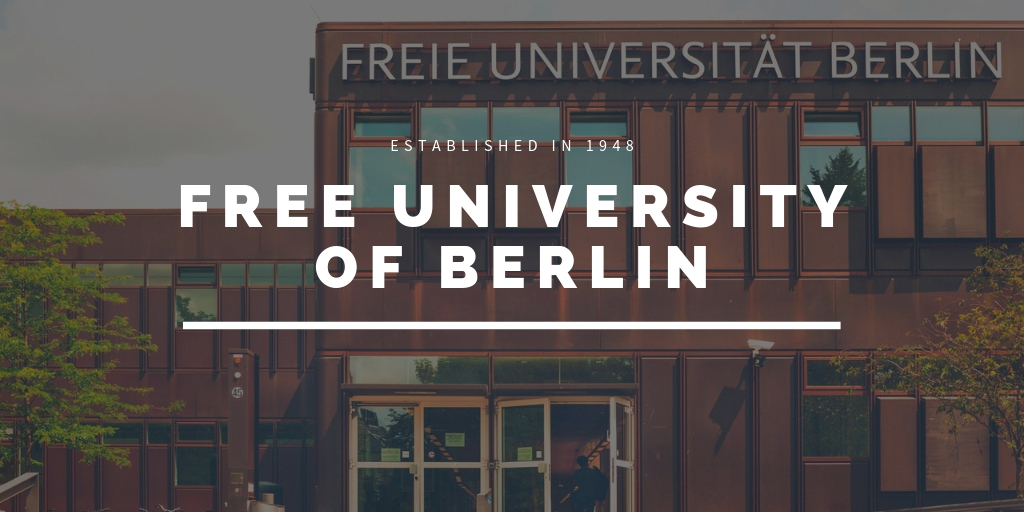
The Free University of Berlin was established in 1948 as the West Berlin continuation of the erstwhile Frederick Wilhelm University which had landed up in East Berlin under Communist control.
The university was named ‘free’ to highlight the “unfreeness” of the University of Berlin in East Berlin specifically and of the Communist world in general.
Today, the Humboldt University (the erstwhile ‘University of Berlin’ from East Berlin) and the Free University of Berlin run faculties and programs in collaboration with each other.
Both Universities provide free and outstanding higher education.
The Free University of Berlin is one of 11 universities in the German Universities Excellence Initiative. Five Nobel Prize and 15 Leibniz laureates have been associated with the Free University.
Interestingly, the five Nobel awards were won for five different things: Physics (1986), Economic Sciences (1994), Peace (2007), Chemistry (2007), and Literature (2009).
The Free University of Berlin offers a plethora of English-language Master’s programs jointly with other Universities.
In our opinion, the most interesting ones in the lot are:
- China-Europe Executive Master of Business Marketing (MBM)
- European and International Business, Competition and Regulatory Law (Master of Business Law)
- Intellectual Encounters of the Islamicate World (Master of Arts)
- Visual and Media Anthropology (Master of Arts)
- Polymer Science (Master of Science), and
- Social, Cognitive and Affective Neuroscience (Master of Science)
Since these courses are taught entirely in English, admission does not require proof of your German skills.
7. RWTH Aachen University
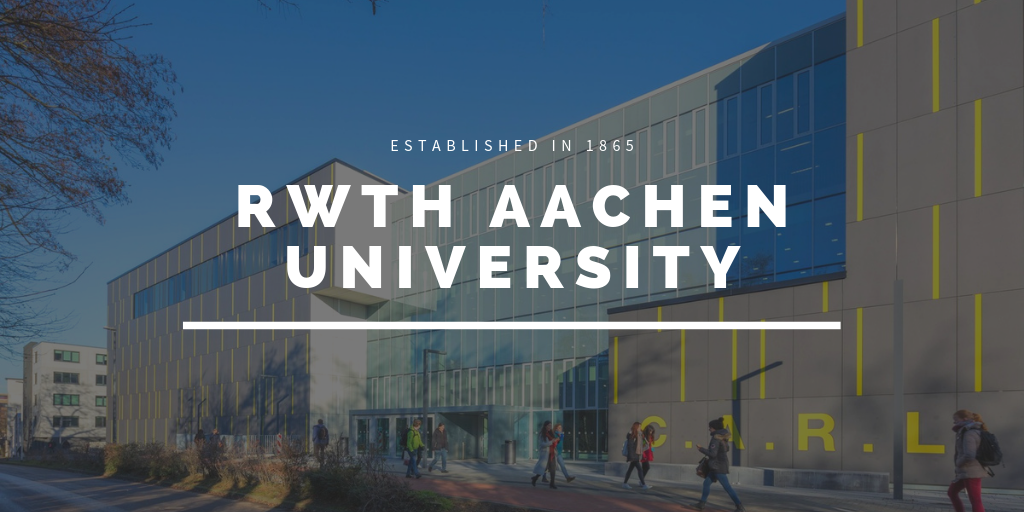
Established in 1865 as the Prussian Institute of Technology, the Rheinisch-Westfälische Technische Hochschule Aachen, known popularly as RWTH Aachen, is the largest technical university in Germany today.
Like other German universities that existed during both the World Wars, RWTH Aachen was heavily affected by the fighting and ideologies of the times.
At the end of World War II, 70% of the university’s buildings were either heavily damaged or destroyed.
However, it was very quick to bounce back, introducing philosophical and medical faculties in 1965 and 1966 respectively.
Today, one out of five board members of German corporate groups are Aachen alumni. Additionally, the university is a member of the TU9 alliance as well.
In spite of introducing faculties and programs that made RWTH Aachen more ‘universal’ in the 1960s, the university’s mainstay remains in the field of science. Three of the five Nobel Prizes won by persons associated with RWTH Aachen were for Physics and the rest were for Chemistry.
Accordingly, all the English-language Masters programs offered at RWTH Aachen are science-based. Some of these stand out:
- Applied Geophysics (Joint Master’s Program in collaboration with Delft University and ETH Zurich)
- Civil Engineering, with a specialization in Advanced Computational Methods in Civil Engineering
- Electrical Engineering, Information Technology and Computer Engineering, with a specialization in Communications Engineering, Micro- and Nanoelectronics or Electrical Power Engineering, and
- Transport Engineering and Mobility, with a specialization in Railway Systems Engineering
Interestingly, RWTH Aachen offers two kinds of Masters programs.
Those offered by the university directly are free of cost. However, the programs it offers in collaboration with private universities as a part of the RWTH International Academy have different regulations.
Some of the programs offered by the RWTH International Academy require work experience and tuition fees.
8. Technical University of Berlin
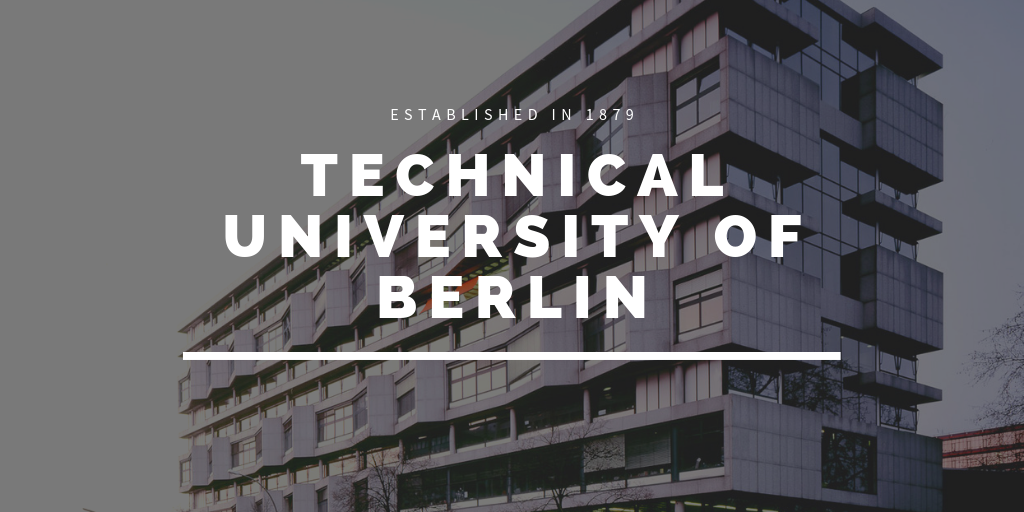
Technische Universität Berlin is an amalgamation of multiple historical and prestigious institutions.
It began in 1879 as ‘Königlich Technische Hochschule Charlottenburg’ or TH Charlottenburg, an amalgamation of the Berlin Building Academy (Bauakademie) and the Royal Trade Academy (Königliche Gewerbeakademie), founded in 1799 and 1821 respectively.
In 1916, the Bergakademie Berlin, a prestigious Prussian mining academy, was assimilated into the TH Charlottesburg. Over time, it was renamed to Technische Hochschule Berlin (TH Berlin), which absorbed the Agricultural College of Berlin’s Department of Geodesy.
It was given its present name when it was reopened in 1946 following closure in 1945.
In 2009, the European Institute of Innovation and Technology designated two Knowledge and Innovation Communities (KIC) within the TU Berlin campus.
The university is a member of the prestigious TU9 alliance.
It offers three types of Master’s in Germany in English:
- International Consecutive Master’s Programs
- International Continuing Education Master’s Programs
- Dual Degree Programs in cooperation with partner universities
As explained before, Consecutive Master’s programs build directly on corresponding Bachelor’s degrees whereas Continuing degrees require some work experience. At TU Berlin, Continuing programs require you to pay tuition fees as a rule.
Here are the interesting Consecutive programs:
- Architecture – Typology, M.Sc.
- Computational Neuroscience, M.Sc.
- Environmental Planning, M.Sc.
- Innovation Management, Entrepreneurship and Sustainability (IMES) M.Sc.
Continuing programs like the following are made for professionals who seek to expand their knowledge and skills:
- Building Sustainability – Management Methods for Energy Efficiency, M.B.A.
- European and International Energy Law, M.B.L.
- Space Engineering, M.Sc.
- IT for Energy, M.Sc.
TU Berlin partners up with a variety of universities to offer some additional Master’s programs as well.
9. University of Tübingen
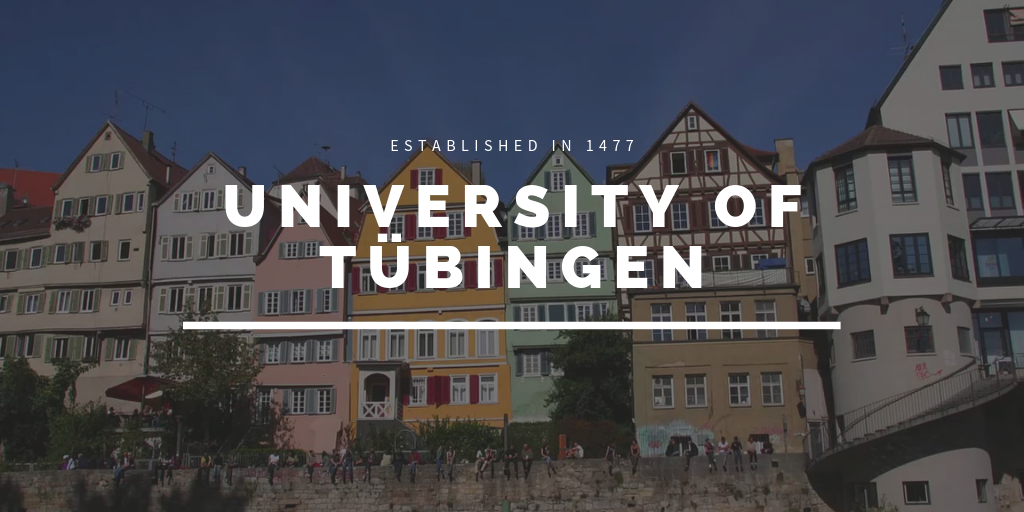
The Eberhard Karls University of Tübingen is more commonly known as the University of Tübingen. It was established in 1477 by Count Eberhard V after he was inspired by the Reniassance movement during his travels to Italy.
Founded by a ecclesiastical reformer, the University historically has had a theological bent of thought and has made significant contributions to the field.
The University has a highly varied and interesting set of notable alumni, ranging from astronomer Johannes Kepler, German President and economist Horst Köhler, Joseph Ratzinger (Pope Benedict XVI), poet Friedrich Hölderlin, and philosopher Friedrich Hegel.
Notably, the University of Tübingen was the first to introduce a faculty of natural sciences as well as a faculty of economics. DNA was discovered at this university.
Today, Tübingen is regularly ranked within the country’s top 10 universities. It still has a strong reputation for humanities and social sciences, especially in the fields of law, economics, philosophy, and theology.
A total of eleven Nobel laureates have been associated with the University of Tübingen, with six for Chemistry, three for Medicine and two for Physics.
The Master’s in Germany in English offered at Tübingen include:
- M.A. in Comparative + Middle East Politics and Society (CMEPS)
- M.Sc. in Applied + Environmental Geoscience AEG
- Master in Computational Linguistics
- Master in Experimental Medicine
The University of Tübingen has international partnerships with Yale University, Georgetown University, Princeton University and the University of California, Berkeley.
This means you can study at any of these Universities without paying tuition fees while enrolled with teh University of Tübingen.
10. University of Freiburg

The Albert-Ludwigs-Universität Freiburg, popular as the University of Freiburg, was established in 1457 and is the fifth-oldest university in Germany today.
With a long tradition of teaching the humanities, social sciences and natural sciences, the University of Freiburg is associated with 21 Nobel laureates. 12 of these were awarded for Physiology or Medicine, 9 for Chemistry and 1 for Physics.
Started out as Albrechts University with four faculties: theology, philosophy, medicine, and law. Today, there are 11 faculties in the University.
The University of Freiburg offers 22 Master’s programs that are exclusively taught in English.
Here are the ones that stand out to us:
- M.Sc. in Crystalline Materials
- M.Sc. in Environmental Governance
- M.Sc. in Global Urban Health (Continuing Education Program)
- M.A. in Modern China Studies
The University also runs a host of bilingual programs that are taught in English as well as German.
We hope this list has helped you understand the best of your options to get an MS in Germany in English.
Please use the comments section below to let us know about any questions or feedback you have!
